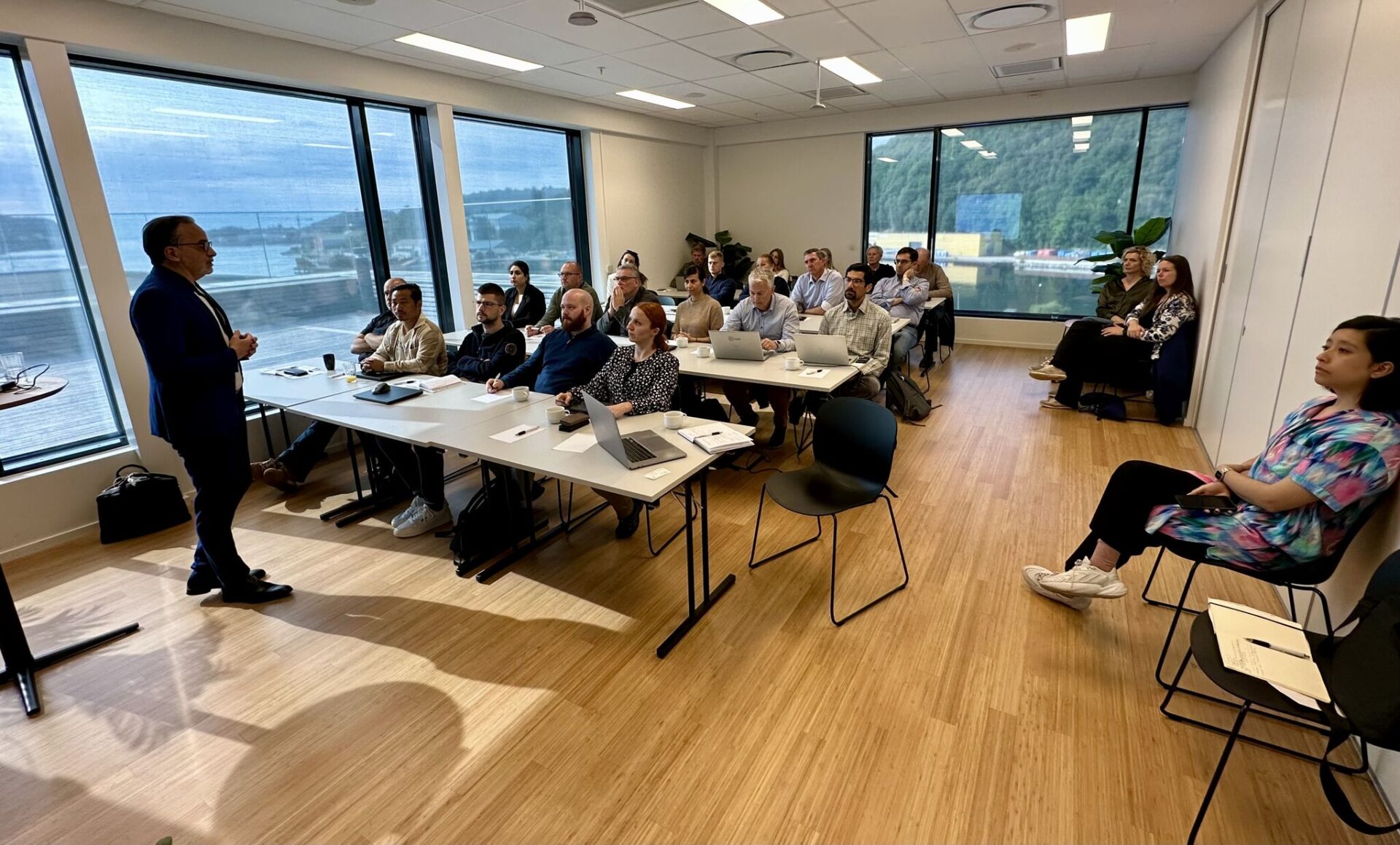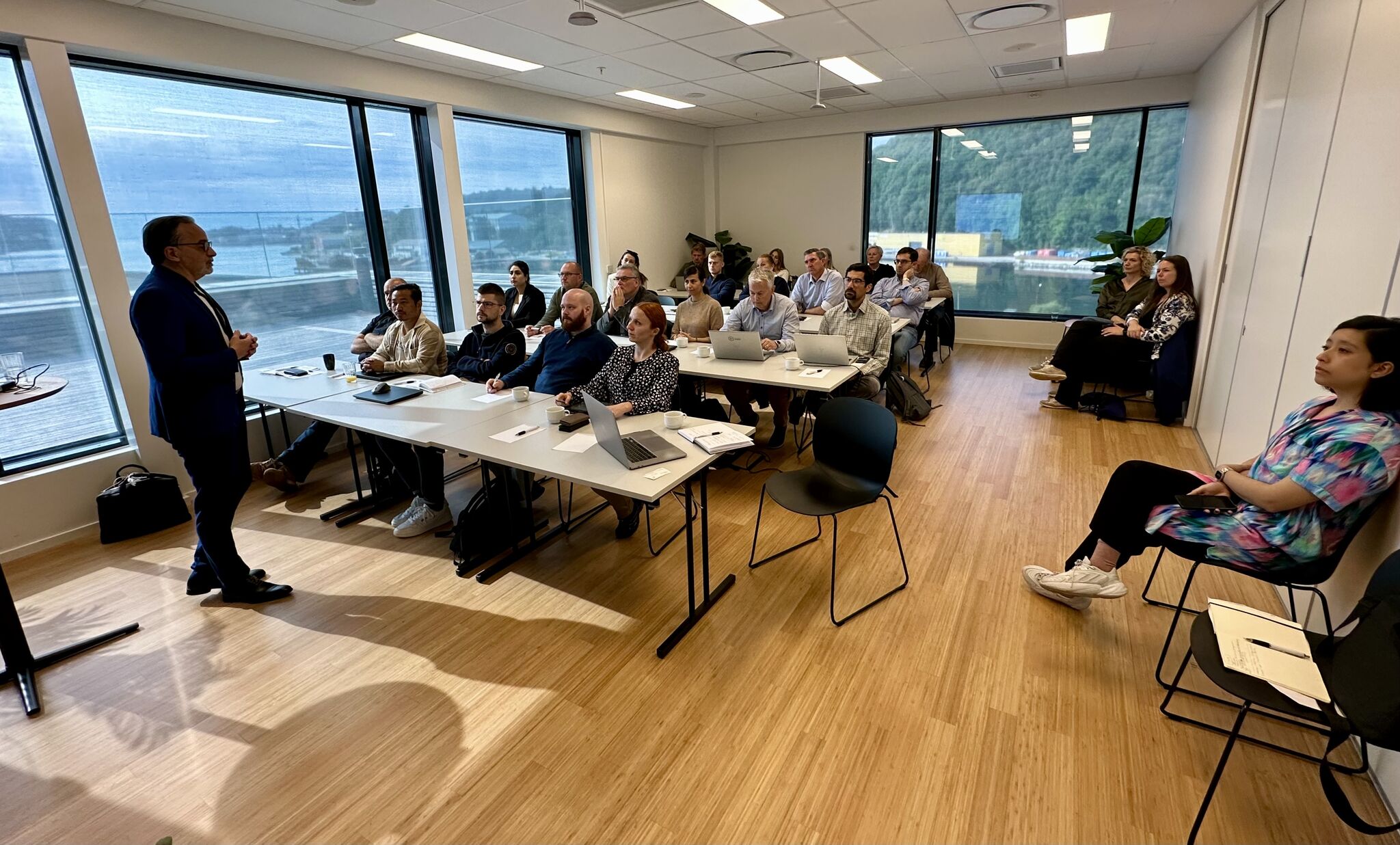
CARBIOW project has been in operation for more than a year now, which has led to numerous occasions where partners have been able to present it at all kinds of industry and stakeholder meetings.
One example was the participation of representatives from The Aachen-Maastricht Institute for Biobased Materials (AMIBM) at the 11th International Conference “Fuel Science: From Production to Propulsion”.
Under the climate change agenda, the concept of fuel production has evolved remarkably. Starting from biofuels produced from crops, it shifted towards using residues and waste with the predominant purpose: to reduce carbon footprint of fuels. While for advanced biofuels the threshold of 65% greenhouse gas emission reduction compared to fossil analogues was set by the EU Renewable Energy Directive, recent technological advances have moved further towards the production of net carbon-zero or even net carbon-negative fuels.
That is why, in their presentation, Svetlana Obydenkova and Michelle Gian addressed the question “What are the preconditions that have to be satisfied in order to categorize such fuels as carbon-negative?“
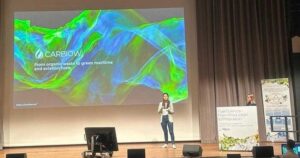
One of the key features of CARBIOW project is the ability to achieve carbon neutral or even net-carbon-negative fuels that becomes possible with CCU. The process includes the fixation of CO2 from oxy-conversion by alkaline bottom and fly ashes. It is expected that the ashes will capture 150 – 200 gCO2 /kg. Carbonated ash will be used as an additive to Portland-alkaline cement that has a potential to reduce the consumption of virgin material and clinker by up to 40%.
In their presentation, they demonstrated the importance of a value chain approach and setting proper system boundaries for the assessment of fuel’s carbon footprint. This approach shows that diverting organic waste being currently landfilled for the fuel production has a potential to reduce the respective carbon footprint to nearly net-zero values, while the combination of this approach with carbon capture and utilization might allow obtaining net-carbon-negative fuels.
Another good example of a partner that has been most active throughout this year and has participated in more than 20 stakeholder meetings, events and workshops in Norway and Europe has been Svåheia Eiendom (SEAS), through its representative, Edesio Miranda-Barbosa, CTO of SEAS.
Some of the most notable events where CARBIOW was presented were:
- 3rd EAGE Global Energy Transition Conference & Exhibition – GET22 (November 2022)
- 20th International Conference on Renewable Mobility “Fuels of the Future” (January 2023)
- SPIREC Spain 2023 (February 2023)
- World Biogas Expo 2023 (March 2023)
- European Biomass Conference – EUBCE 2023 (June 2023)
- European Sustainable Energy Week – EUSEW 2023 (June 2023)
- European Bioenergy Future -EBF2023 (November 2023)
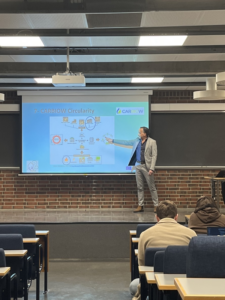
Besides, in October 2023 he was also a guest lecturer at the University of Stavanger, where he presented CARBIOW to both researchers and students with a surprising result:
“After the guest lecture, 3 master students became interested in working on CARBIOW and they just started their work with us in February this year”, states Edesio Miranda-Barbosa, CTO of SEAS.
Last but not least, CARBIOW project was one of the European projects presented during the 6th edition of the International Circular Economy Meeting that took place in San Sebastian (northern Spain) in January 2024.
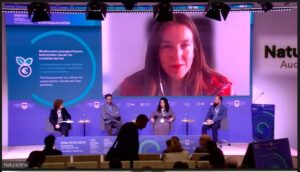
The same opening round table of the second day was attended by representatives of TECNALIA and BIOPLAT: Beatriz Aberasturi, project coordinator; and Margarita de Gregorio, leader of the Communication and Dissemination work package.
In this context, Beatriz cited CARBIOW as the perfect example of bioeconomy applied to energetic transition, as it allows closing productive circles by transforming OFMSW and those solid organic wastes that are difficult to treat into biofuels (alcohols for maritime, and kerosene for the aviation sector), and also contributing to decarbonising the cement industry by capturing the ashes of the gasification process.
